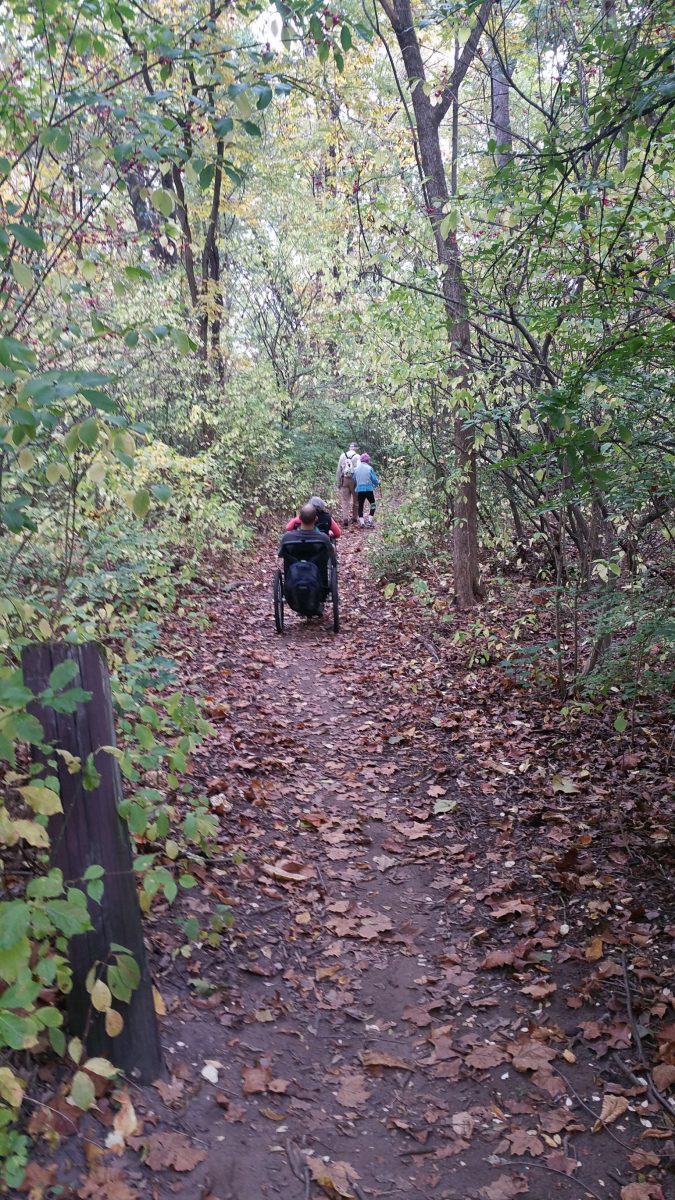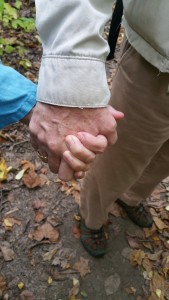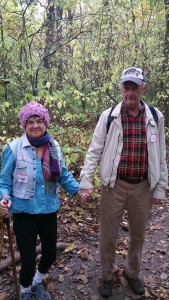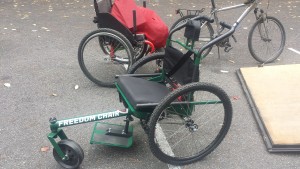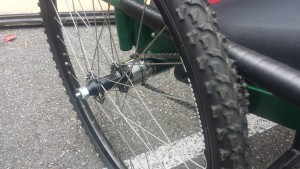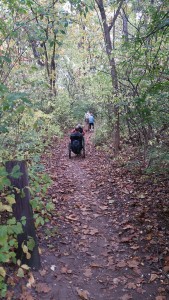AGAWAM—As Angie Boyle walks carefully but shakily through Robinson State Park, Dan Boyle—her husband of 25 years—never lets go of her hand.
The couple recently trekked through the park as part of the Universal Access Program, which is run by the Department of Conservation and Recreation (DCR). The program is designed to provide people with handicaps and disabilities a chance to explore nature and experience outdoor activities safely and affordably.
Angie, who suffered a traumatic brain injury while swimming in the ocean on the coast of Maine in August 2013, said that the program has saved her life.
“This group has kept me alive,” she said. “I wouldn’t be here if it wasn’t for this.”
And her husband agrees.
He said that after multiple medical issues following the brain injury, including total organ failure and a fall that broke multiple bones in her leg, Angie struggled with what life had become. Angie had gone from being a nurse practitioner who made it to Maine several times a year to swim in the ocean where her mother’s ashes were interred, to meandering in a four-room apartment each day.
“She was totally dejected, totally anxious about what was going on with her and totally depressed because she couldn’t work and didn’t know what to do,” Dan said.
However, after Angie’s psychologist guided the two to the Pioneer Valley Brain Injury Support Group, they were able to connect with multiple people, including Brenda Kennedy, program director for Outdoor Access, a program run through Universal Access.
Through Kennedy, they found out about the program she directed and gave a renewed outlook on life.
“It made an immeasurable improvement on the outlook of her life,” he said.
Along with Dan and Angie Boyle, several others made their ways through the woods, and were all accompanied by staff members from DCR. Not only are staffers there, but those who are wheelchair-bound or otherwise have difficulty ambulating are provided with a device called the GRIT Freedom chair.
The Freedom chair, which was developed by students at MIT in 2007, provides its operators with the ability to wheel through rugged and uneven terrain with increased stability and mobility. This is because the device has two bicycle-style wheels, complete with gears and chains. These gears connect to poles that riders can use to get the wheels turning at a higher rate but with less energy needed.
This device is crucial for some participants, such as Ginny Collins, who was also in Robinson State Park with the Boyles.
Collins, who broke vertebrae in her back in a skiing accident that resulted in being wheelchair-bound, was an avid outdoorswoman but was limited due to the normal wheelchair.
However, once she got a Freedom chair, this all changed.
“It allows me to get in the woods and I’m all about getting into the woods and have as much freedom as I can,” Collins said.
Helping others access the outdoors
The Universal Access program aims to do one thing in particular—to provide outdoor access for everyone.
“We welcome people of all abilities and age ranges,” Laila Soleimani, outreach coordinator for the program, said.
Soleimani said that the group makes sure that each area is scouted beforehand. This is done to make sure that whatever activity or path is planned, it is not too strenuous or cumbersome.
And the activities provided aren’t limited to hiking and nature walks during warm weather.
Kennedy said that other activities include kayaking, canoeing, scavenger hunts and snowshoeing. These activities are done across the state, at any one of the many DCR parks.
“People are depressed and this gets them out of their homes,” Kennedy said.
Kennedy though, hopes to get the word out more about the programs.
“They are 10,000 people on our mailing list statewide, but there are still so many who don’t know about our program,” she said. “But when they find out it changes their lives.”

